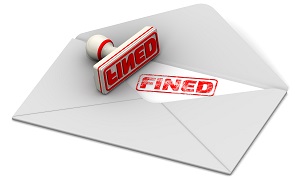HOA rule compliance is an issue that association boards greatly struggle with. When structuring an approach, you need to balance the requirements of the HOA with the needs of the residents. It’s important to have a concrete structure in place to avoid unnecessary conflicts with your residents. If you want to learn more about effective ways to encourage compliance with homeowners association rules, review the information below:
What Is HOA Rule Compliance?
 HOA rules can vary by community. Many HOA rules and regulations can be found in the association’s governing documents. Typically, these documents will include the articles of incorporation, covenants, conditions & restrictions (CC&Rs), and bylaws of your HOA. These documents will assist you in specifying the rules for your community such as parking enforcement, and architectural guidelines, among others. As members of the HOA, residents need to comply with these rules and regulations.
HOA rules can vary by community. Many HOA rules and regulations can be found in the association’s governing documents. Typically, these documents will include the articles of incorporation, covenants, conditions & restrictions (CC&Rs), and bylaws of your HOA. These documents will assist you in specifying the rules for your community such as parking enforcement, and architectural guidelines, among others. As members of the HOA, residents need to comply with these rules and regulations.
Who Is Responsible for Making and Enforcing Community Rules?
Depending on your association, HOA rules are created when the community is completed by the developer. That said, the rules can be updated by the board of directors of the HOA. In addition to creating new rules, the HOA board is responsible for enforcing the rules among residents.
What Are the Benefits of HOA Rule Enforcement?
Enforcing rules can be very beneficial to your community. The many advantages of HOA rule enforcement include protecting and enhancing home values, preserving the aesthetics of an area, maintaining the property of the association and its owners, and enforcing the community’s bylaws and CC&Rs.
How Can HOA Enforce Rules? 6 Ideal Ways for HOA Compliance
Many HOA boards have a great challenge in finding creative ways to encourage HOA rule compliance. Here are guidelines you can follow for better adherence to HOA regulations:
1. Explain Intentions
One great mistake that HOA boards make is that they fail to explain why a specific regulation has been modified or was set out in the first place. If the HOA board fails to explain its intentions for making a change, the residents will have a more difficult time understanding. It is important for HOA boards to explain their intentions clearly to their residents in order to avoid issues with rule compliance.
2. Create a Committee
 Many times, residents will have questions about new regulations. It is the duty of your HOA board of directors to answer these questions. You can have a committee that holds regular meetings where residents can attend and ask questions. This is a great way to clarify possible misunderstandings.
Many times, residents will have questions about new regulations. It is the duty of your HOA board of directors to answer these questions. You can have a committee that holds regular meetings where residents can attend and ask questions. This is a great way to clarify possible misunderstandings.
In addition, having a committee will help your HOA board to delegate the work involved with managing residents and their compliance with the regulations of your HOA. Make sure to create a committee if you have not done so already. It will help to resolve many of the issues that your HOA board of directors is facing.
3. Be Direct With Your Residents
It is important to address issues directly. At times, residents need to be told directly about their violation of a rule or regulation. So the sooner that you can clarify a conflict with one of your residents, the better. If a resident feels that their complaints are not being answered promptly, it may have a negative impact on other residents within your community. By having a relationship with each and every one of the residents, the HOA board of directors will be able to eliminate issues and encourage compliance with both new and old regulations.
4. Give Notice
One of the largest errors that HOA boards can make is not giving their residents proper notice of a major change within their regulations. For example, if fees are going up, residents must be informed with notice to be able to adjust their budgets. If a new regulation will make a resident invest more capital in the maintenance of their property, then it is also important to give them adequate notice. Generally speaking, three to six months’ notice is reasonable for minor fiscal changes. For major fiscal changes, the closer your HOA board of directors can get to one year of notice, the better.
5. Communicate Efficiently and Often
You can encourage residents to respect and follow your community regulations by communicating efficiently and often. If you do not communicate well with your residents, they will likely have confusion about your regulations and may not adhere to them. Also, if you do not promptly answer your residents, you may have issues with them respecting your HOA enough to comply with its regulations.
6. Go Digital
 A great tool to ensure HOA rule compliance from your residents is to integrate a digital strategy across the board for HOA operations. Residents will be more likely to understand new regulations if they are written on an electronic newsletter via email, for example. Residents will also be able to respond better to an alert system that has text message notifications about important deadlines, meetings, or changes that are occurring.
A great tool to ensure HOA rule compliance from your residents is to integrate a digital strategy across the board for HOA operations. Residents will be more likely to understand new regulations if they are written on an electronic newsletter via email, for example. Residents will also be able to respond better to an alert system that has text message notifications about important deadlines, meetings, or changes that are occurring.
Having a Facebook group for the current events of your HOA is an excellent way to encourage connectivity and understanding within your community. Residents will be more likely to follow the activities of your HOA if it is more accessible to them. If you use many tools that are available in the digital world to your advantage, you will notice an increased level of compliance from your residents.
How to Deal With Homeowner Association Violations?
Even if your HOA sets up guidelines that encourage HOA compliance, it’s still possible to encounter residents who do not follow your rules and regulations. Your governing documents should be clear on how to deal with these rule violations.
Can a Homeowners Association Fine You for Non-Compliance?
 Most HOAs will first send a notice to homeowners to inform them of their violations. These residents have enough time to resolve their violations. However, if they do not make any effort to do so, the board can take further action.
Most HOAs will first send a notice to homeowners to inform them of their violations. These residents have enough time to resolve their violations. However, if they do not make any effort to do so, the board can take further action.
The HOA board can impose a fine for non-compliance with HOA rules. The amount should not be too high, but enough to discourage homeowners from repeating their violations. The fine can increase for succeeding violations.
If there are residents who are adamant about not following HOA rules, the association may choose to revoke their access to amenities and other privileges provided by the community. In extreme cases where a resident seemingly ignores the violation notices, fines, and sanctions, the board can choose to file a lawsuit.
What Happens When the Board Doesn’t Enforce HOA Rules Properly?
On a similar note, HOA boards can also become liable if they do not enforce community rules and regulations properly. For example, the board may impose fines on a homeowner who breaks the rules but lets it pass when another homeowner does it. HOA board members should be impartial, so personal relationships must not factor in HOA rule enforcement.
To prevent lawsuits and other legal issues. the HOA should have a standard procedure for dealing with violations. This should also be clearly stated in your community’s bylaws. Make sure that each case of non-compliance is subject to the same procedures.
Possible Issues With HOA Rule Compliance and Enforcement
It can be difficult to enforce HOA rules since there are only a few board members and hundreds of homeowners. If you are a large community that struggles with HOA rule compliance and enforcement, it may be a good time to consider HOA management services.
An HOA manager can help the board by handling rule violations. Your HOA management will be the one to contact homeowners, send notices, follow up cases, and pursue further action when needed. HOA management can also perform many other duties for the board such as financial management, collection services, back-office services, and insurance services.
Encourage HOA Rule Compliance for a Happier and Safer Community
The best way to encourage HOA rule compliance is to make residents aware of their purpose. If they understand that the rules are there to help protect the community, they will make more effort to comply. It’s also the board’s responsibility to ensure the proper performance of HOA rules. If residents see that there is unfair treatment, they won’t feel the need to comply with your rules and regulations. It’s only when both parties contribute that you’re able to attain a happier and safer community. If you need assistance with HOA rule compliance, don’t hesitate to give Clark Simson Miller a call.
RELATED ARTICLES:

